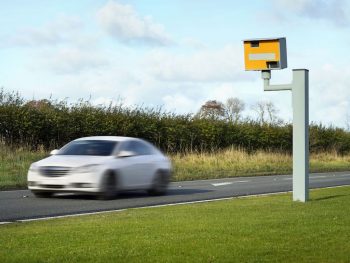Record number of court cases for speeding, but drug-driving cases fall
Court cases for speeding hit a record high last year, although drug-driving and mobile phone prosecutions both fell.

Almost a quarter of a million drivers (245,043) sat in the dock accused of speeding last year
AA analysis of newly published 2022 Criminal Justice Statistics shows almost a quarter of a million drivers (245,043) were sat in the dock accused of speeding last year.
It’s the highest total since records began – and a warning to drivers that “those willing to gamble when behind the wheel should think again”, according to the AA.
Its analysis also uncovered that more than 55,500 cases were heard for vehicles being on the road without tax; up 12.3% compared to the previous year.
Similarly, more than 101,057 people found themselves in court for failing to supply information after being required to do so by the police, up from 96,799 in 2021.
The data also shows that some 83,100 drivers were in court for driving without insurance last year, down 11,000 cases compared to 2021, while more than 3,000 drivers stood accused of driving without a valid MOT.
Worryingly, the number of drink-driving court cases rose by 1.8% to 33,099 last year.
But drug-driving and mobile phone prosecutions both fell, down 16.0% and 15.5% respectively.
In total, 710,738 cases went to court for motoring offences last year – of which 642,236 resulted in a conviction. This means that nine out of 10 motoring cases that end up in court result in a guilty verdict, showing that drivers are highly unlikely to be acquitted.
Jack Cousens, head of roads policy at the AA, said: “These figures serve as a reminder of the huge consequences both poor and illegal driving can result in.”
He added: “Some may say that record speeding cases are just a reflection of too many cameras but speeding can be life-ending and life-changing, so it is only right that those excessive speeders are properly punished.”
But while the number of cases for using a handheld mobile phone behind the wheel and drug driving have fallen, the AA says it’s not fully convinced that this is due to improved compliance.
“Our own studies show that a quarter of drivers regularly see others picking up a phone when behind the wheel, meanwhile a reduction in dedicated traffic officers means some drivers feel they can get away with certain behaviours.”
Latest figures indicate drug-driving actually on the rise
While the Criminal Justice statistics show a fall in drug-driving court cases, latest research indicates that actually more drivers are taking to the roads while under the influence.
Department for Transport (DfT) data shows the number of drug-driving incidents has reached record highs in the UK. Drug-related collisions and casualties have surged by over 260% in the last decade, with 44% of these offences being committed by previous offenders.
Recently published figures from the National Police Chiefs’ Council show that almost 9,000 drivers were caught drink- or drug-driving in the Operation Limit campaign across England, Wales and Northern Ireland at Christmas – with over half of drivers tested at the roadside found positive for drug-driving.
Meanwhile, IAM RoadSmart research has indicated that drug-driving in the UK has reached epidemic proportions, with potentially millions of motorists getting behind the wheel after consuming illegal drugs. A survey of 2,028 motorists by the road safety charity revealed that 10% had driven in the 24 hours after taking illegal drugs.
It’s also found that company car drivers are more likely to drive under the influence of drink or drugs and take risks on distracted driving compared to private drivers. A survey of more than 2,000 at-work drivers by the business found 31% believe driving after using Class A drugs such as cocaine and ecstasy is acceptable, compared to 5% of non-company car drivers.
While a consultation last year explored whether drug drivers should be required to undertake rehabilitation courses before being allowed back behind the wheel, the results haven’t been announced.
The IAM has urged for an outcome and also called for development of a rehabilitation option for drug-driving, with a particular focus on illegal substances, that is effective in reducing reoffences. It’s also said it wants to work with partners, in government and the health sector, to raise awareness and advise on how prescribed medications can have an impact on a driver’s judgement while behind the wheel.












